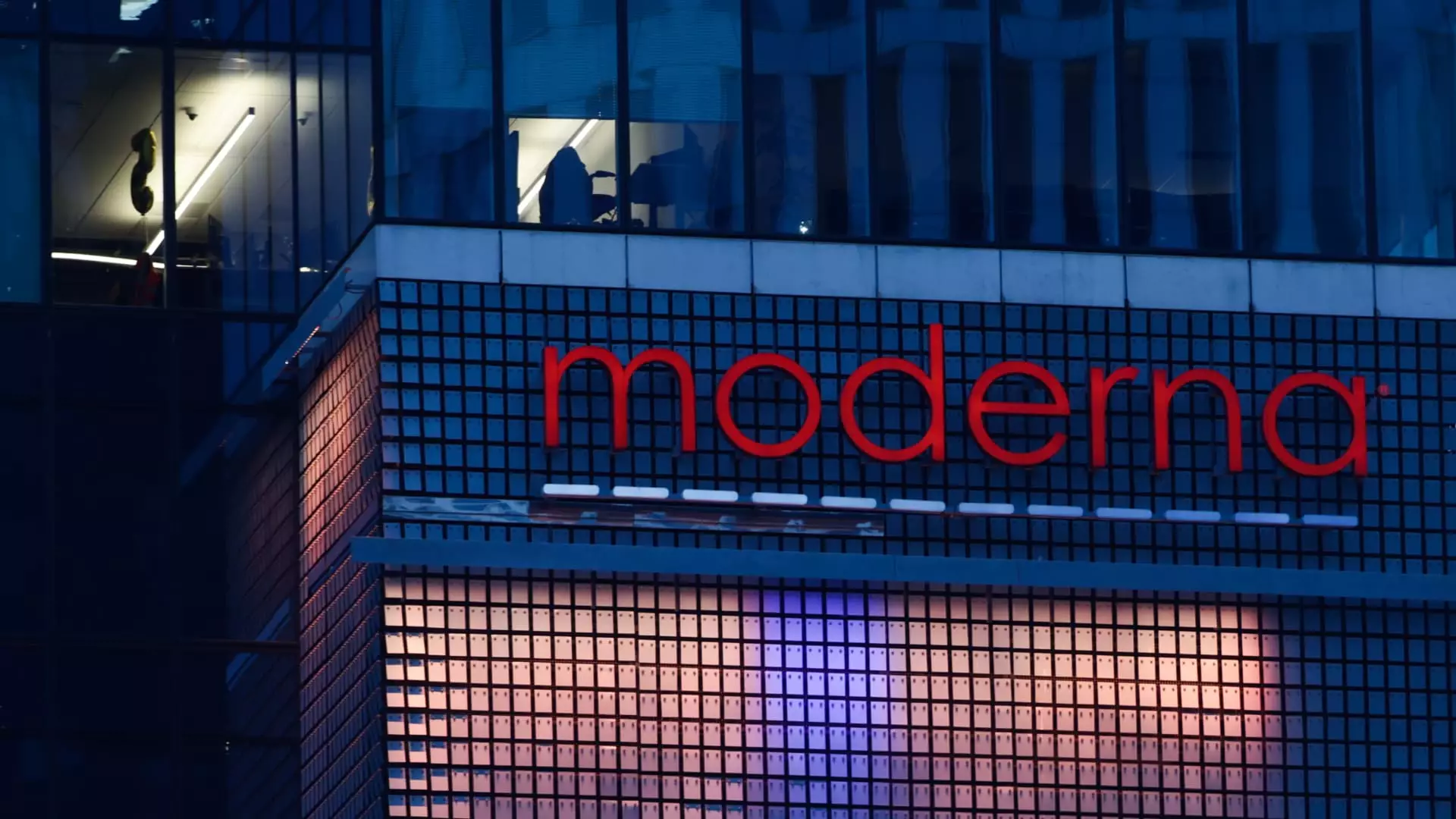Moderna’s recent breakthrough with its experimental flu vaccine is more than just a modest victory; it’s a powerful signal that the biotech sector can still innovate in ways that matter. The 2% stock boost following the positive late-stage trial results is encouraging, but this milestone should be viewed through a sharper lens. Moderna’s ability to develop a standalone flu shot, alongside a combination Covid vaccine, demonstrates strategic agility—a crucial quality in today’s competitive pharmaceutical landscape. However, the real test lies ahead: can Moderna turn promise into widespread adoption without repeating the hype-and-wait cycles that have characterized much of biotech investing?
Tech Titans Resolve Legal Hurdles: HPE and Juniper Networks
The U.S. Department of Justice’s settlement allowing Hewlett Packard Enterprise (HPE) to acquire Juniper Networks for $14 billion is a clear case where regulatory friction meets corporate determination. Shares climbing 14% and 8% respectively reflects market relief, but the underlying story is more nuanced. The DOJ’s initial lawsuit underscored concerns about monopolistic consolidation in critical tech infrastructures. While the settlement removes that immediate barrier, this acquisition raises broader questions about the balance between fostering innovation and stifling competition. It’s a reminder that even center-right liberal perspectives must grapple with how corporate consolidation can sometimes limit market dynamism.
Meta’s Strategic AI Offensive: Hunting Elite Talent
Meta’s recruitment of four AI researchers from OpenAI to lead a new Superintelligence group is a bold—and somewhat desperate—move. Securing top talent is essential for any tech giant aiming to dominate artificial intelligence, but it also reflects how Meta is playing catch-up rather than leading innovation. The 2% rise in shares captures investor optimism, yet one cannot ignore the underlying caution. Meta’s pivot towards AI, though late, underscores the reality that the future of social media and digital platforms hinges on breakthroughs in machine learning. Still, this aggressive talent poaching reveals Silicon Valley’s talent scarcity problem and Meta’s ambitious—and costly—bets.
Home Depot’s Acquisition Spurs Doubts on Market Valuations
The Home Depot bid for GMS at approximately $4.3 billion, surging shares by over 11%, is another indication of major players acting decisively to control supply chains and product distribution. While strategic on paper, the bidding war exposes a troubling trend of aggressive overvaluation. Unsolicited bids like QXO’s only add fuel to a market that often values scale over prudent financial management. Investors and regulators alike should question whether these premiums truly reflect operational synergies or simply market exuberance driven by a fear of missing out.
Palantir and Accenture: The Federal Government’s AI Experiment
Palantir’s partnership with Accenture Federal to integrate AI for U.S. government operations is emblematic of the increasing reliance on private tech firms to run public sector functions. The modest share increases for both companies signal confidence, yet they mask deeper concerns about accountability and effectiveness. Entrusting AI-powered automation to such contractors, while pragmatic, raises questions about transparency—something center-right liberals should weigh carefully, especially amid calls for more government efficiency without sacrificing oversight.
Disney’s Rebound: Resilience or Temporary Bounce?
Disney’s 2% uptick after Jefferies’ upgrade illustrates Wall Street’s faith in the company’s theme parks and upcoming cruise ship launches, projected to boost revenue in 2026. This assessment highlights the resilience of traditional entertainment amidst a digital revolution. However, the upgrade risks overestimating the durability of legacy business lines as streaming services and global economic uncertainties shift consumer spending patterns. Investors optimistic about Disney should remain wary of potential disruptions ahead.
Tesla vs. Trump’s Spending Bill: The Fiscal Clash Threatening EV Growth
Tesla’s slight 1% dip in response to the progress of President Trump’s spending bill reveals the fragility of the clean energy sector in the face of shifting federal policies. The bill’s expedited phasing out of clean energy tax credits jeopardizes electric vehicle adoption momentum that the previous government nurtured. This development is a stark reminder that technological progress alone cannot drive clean energy transformation—political will and consistent policy frameworks are crucial. For advocates of a market-driven but pragmatic green energy transition, stability in regulations must be prioritized to avoid harming innovators like Tesla.
—
These moves collectively paint a picture of an economic and technological landscape marked by bold ambitions, regulatory challenges, and political uncertainties. Each headline reflects not just corporate strategy but the underlying ideological tensions of how free-market innovation should balance with governmental oversight and ethical considerations.

